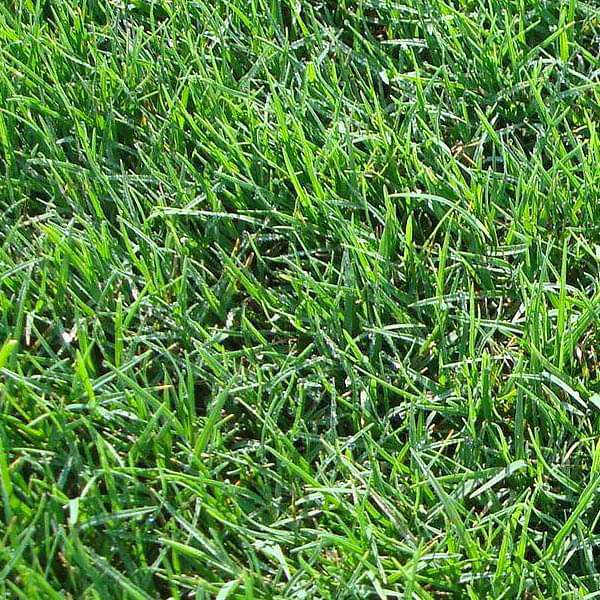
Bermuda Lawn Grass - 250 g seeds
(MRP Inclusive of all taxes)
- Shipping ₹79 for entire order
- Country of origin: India

(MRP Inclusive of all taxes)
 Save 35%
Save 35%
Strawberry - Fruit Seeds Discover the joy of growing your own strawberries with our premium Strawberry Fruit Seeds. Known scientifically a...
View full details Save 25%
Save 25%
Papaya Farm Improved - Desi Fruit Seeds Discover the joy of gardening with our Papaya Farm Improved - Desi Fruit Seeds. These premium seed...
View full details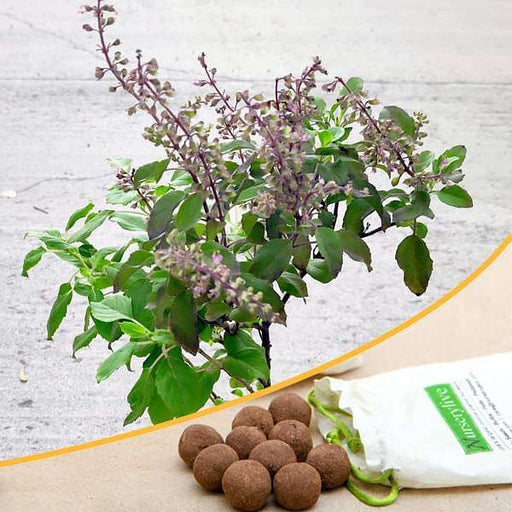 Save 20%
Save 20%
Krishna Tulsi - 20 Seed Balls Discover the divine essence of Krishna Tulsi with our 20 Seed Balls, a perfect blend of tradition and sustai...
View full details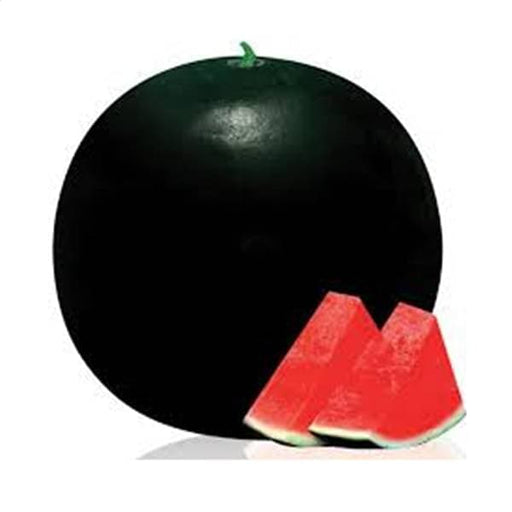 Sold out
Sold out
Water Melon F1 Arya 114 - Fruit Seeds The Water Melon F1 Arya 114 is a premium hybrid variety known for its juicy, sweet flavor and vibran...
View full details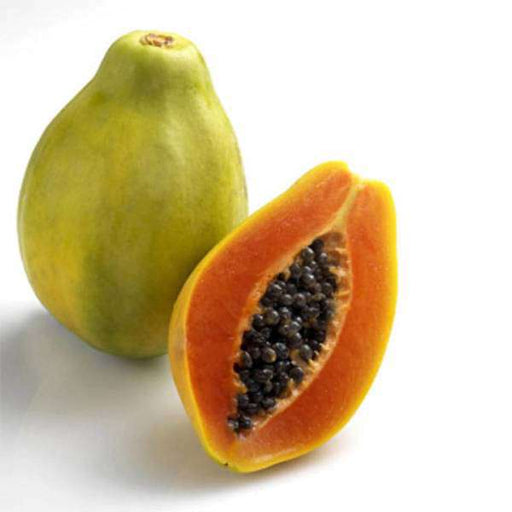 Save 25%
Save 25%
Papaya Nanha Munha - Desi Fruit Seeds Discover the delightful taste of Papaya Nanha Munha, a unique variety of desi fruit seeds that bring...
View full details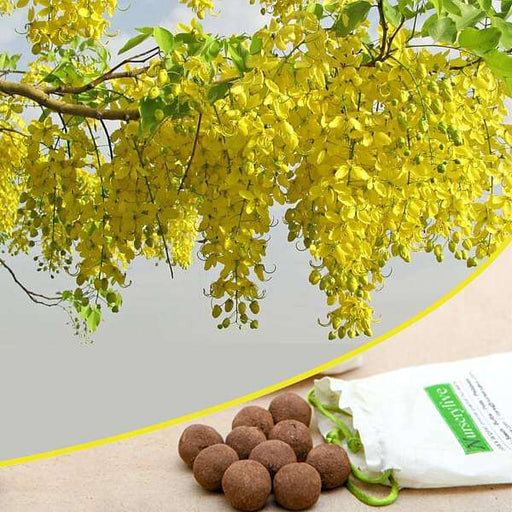 Save 20%
Save 20%
Cassia Fistula - Golden Shower Tree Seed Balls (20 Seed Balls) The Cassia Fistula, commonly known as the Golden Shower Tree, is a stunning...
View full details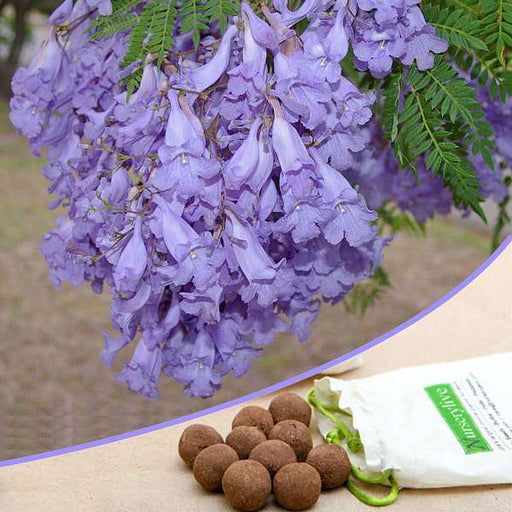 Save 20%
Save 20%
Jacaranda mimosifolia, Neel Mohar - 20 Seed Balls Discover the beauty of the Jacaranda mimosifolia, commonly known as Neel Mohar, with our...
View full details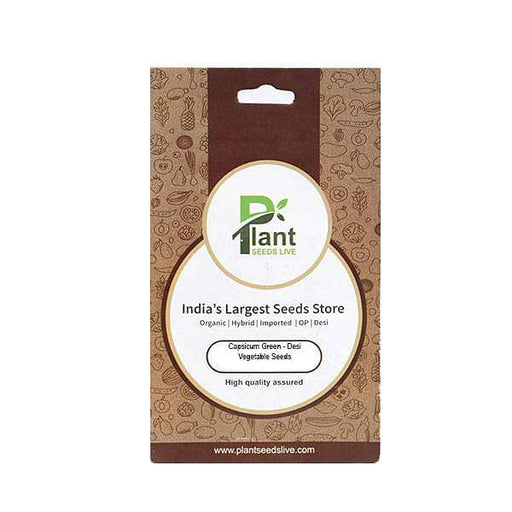
 Save 25%
Save 25%
Capsicum Green - Desi Vegetable Seeds Capsicum Green, also known as bell pepper, is a vibrant and nutritious addition to your garden. Thes...
View full details
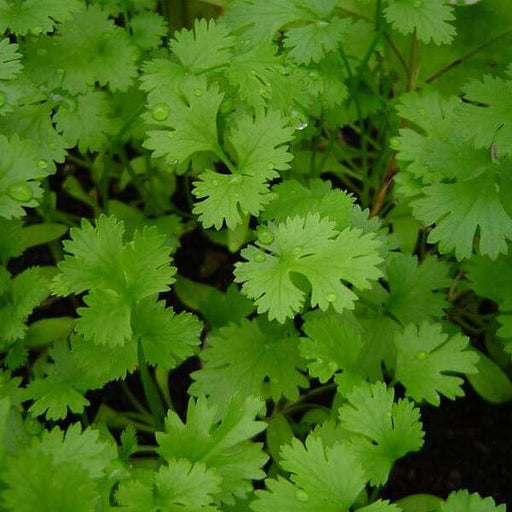 Sold out
Sold out
Coriander Panipat - Desi Vegetable Seeds Coriander Panipat is a premium variety of coriander seeds, cherished for its aromatic leaves and ...
View full details
 Save 25%
Save 25%
Cherry Tomato, Cherry Tomato Honey - Vegetable Seeds Discover the delightful world of Cherry Tomato Honey seeds, perfect for home gardener...
View full details
 Sold out
Sold out
Tomato Pusa Ruby - Desi Vegetable Seeds The Tomato Pusa Ruby is a premium variety of tomato seeds, renowned for its vibrant red color, jui...
View full details
 Save 25%
Save 25%
Spinach All Green - Desi Vegetable Seeds Introducing the Spinach All Green - Desi Vegetable Seeds, a premium variety of spinach that thriv...
View full details
 Save 25%
Save 25%
Tomato Ped - Desi Vegetable Seeds Introducing the Tomato Ped - Desi Vegetable Seeds, a premium selection of heirloom tomato seeds that pro...
View full details
 Sold out
Sold out
Chilli Surajmukhi - Desi Vegetable Seeds Introducing the Chilli Surajmukhi, a unique variety of desi vegetable seeds that brings a burst o...
View full details
 Save 25%
Save 25%
Carrot Red Long - Desi Vegetable Seeds Introducing the Carrot Red Long - Desi Vegetable Seeds, a premium variety known for its vibrant col...
View full details
 Save 25%
Save 25%
Brinjal Purple Round - Desi Vegetable Seeds Discover the rich flavors and vibrant colors of Brinjal Purple Round, a staple in Indian cuisi...
View full details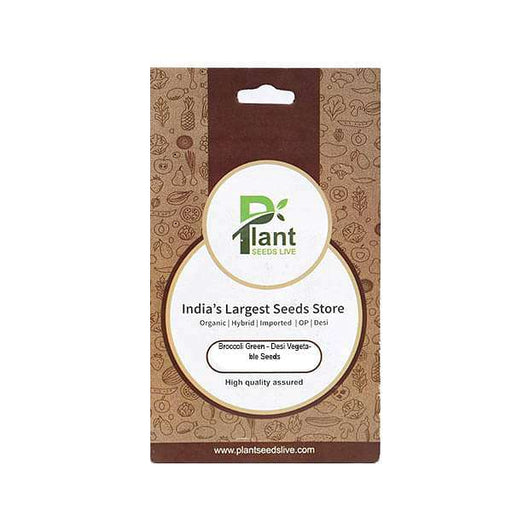
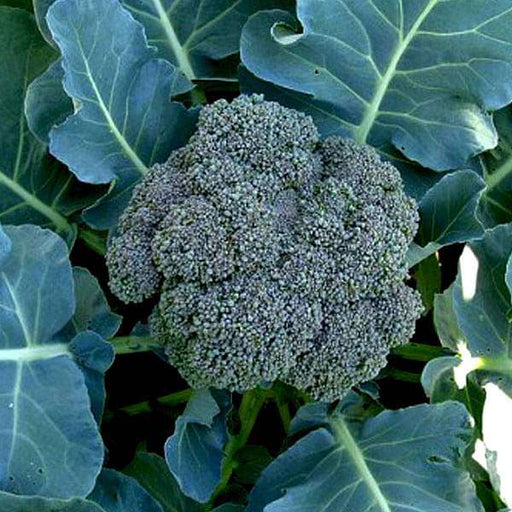 Save 25%
Save 25%
Broccoli Green - Desi Vegetable Seeds Discover the vibrant world of Broccoli Green with our premium Desi Vegetable Seeds. Known for its ri...
View full details
 Save 35%
Save 35%
Best 6 Plants for Perfect Indoor Garden Transform your living space into a lush oasis with our curated collection of the Best 6 Plants for a...
View full details
 Save up to 50%
Save up to 50%
Mini Succulent Garden Pack Transform your space with our Mini Succulent Garden Pack, featuring a delightful collection of 4 any variety beautiful s...
View full details
 Save 30%
Save 30%
5 Best Fragrant Plants Transform your garden or indoor space into a fragrant paradise with our curated selection of the 5 Best Fragrant Plants. Th...
View full details
 Save 24%
Save 24%
Set of 2 Bonsai Looking Grafted Adeniums Transform your indoor or outdoor space with our exquisite Set of 2 Bonsai Looking Grafted Adenium...
View full details Save 45%
Save 45%
Top 4 Die Hard Succulents Pack Transform your indoor or outdoor space with our Top 4 Die Hard Succulents Pack, featuring a curated selecti...
View full details
 Save 30%
Save 30%
5 Best Indoor Plants Pack Transform your living space into a lush oasis with our '5 Best Indoor Plants Pack.' This carefully curated collection fe...
View full details
 Save 25%
Save 25%
Set of 4 Evergreen Air Purifier Plant Pack Transform your indoor space into a lush, green oasis with our Set of 4 Evergreen Air Purifier Pla...
View full details| SrNo | Item Name |
|---|---|
| 1 | Bermuda Lawn Grass - 250 g seeds |
Bermuda Lawn Grass is a premium choice for homeowners and landscapers seeking a lush, green lawn that thrives in warm climates. Known scientifically as Cynodon dactylon, this hardy grass variety is perfect for sunny areas and is highly resistant to drought, making it an eco-friendly option for sustainable landscaping. With its rapid growth and ability to withstand heavy foot traffic, Bermuda grass is ideal for residential lawns, sports fields, and golf courses.
What makes Bermuda Lawn Grass special is its exceptional adaptability to various soil types and its resilience against pests and diseases. This grass variety not only enhances the aesthetic appeal of your outdoor space but also contributes to soil health by preventing erosion and promoting biodiversity. Its deep root system allows it to access nutrients and moisture, ensuring a vibrant lawn even in challenging conditions.
Special features of Bermuda Lawn Grass include its quick germination time, typically within 7-12 days, and its ability to recover rapidly from wear and tear. This grass type also boasts a rich green color and fine texture, providing a beautiful backdrop for outdoor activities and gatherings.
If you’re looking for a lawn that can withstand the heat of summer and the occasional foot traffic from your kids or pets, Bermuda grass is your go-to. This resilient turf thrives in sunny conditions, making it the perfect choice for those sun-soaked backyards. Plus, it’s drought-resistant, so you can save on your water bill while still enjoying a lush green lawn. Who knew saving money could look so good? With Bermuda grass, you’ll be the envy of the neighborhood, and your lawn will be the talk of the town—just don’t forget to invite your neighbors over for a barbecue to show it off!
Ah, the magic of germination! When you plant Bermuda grass seeds, you’re not just tossing them into the ground; you’re starting a mini revolution in your yard. Typically, these seeds take about 7 to 12 days to sprout, depending on the weather and soil conditions. It’s like waiting for a surprise party to unfold, but instead of guests, you get a vibrant green carpet. Just remember to keep the soil moist and provide some sunshine, and soon enough, you’ll have a lawn that’s ready for picnics, playdates, and maybe even a game of lawn darts.
Timing is everything, especially when it comes to planting Bermuda grass. The best time to sow those seeds is during the warm months, ideally from late spring to early summer. Think of it as the lawn’s version of a summer vacation—sunshine, warmth, and plenty of time to grow. Planting too early or too late can lead to a sad, patchy lawn that’s more “meh” than magnificent. So, grab your seeds and mark your calendar; it’s time to give your yard the summer fling it deserves!
Maintaining Bermuda grass is like keeping a pet; it requires love, attention, and the occasional grooming. Regular mowing, watering, and fertilizing are essential to keep your lawn looking its best. Mow it to about 1 to 2 inches high to encourage healthy growth and discourage weeds. And don’t forget to give it a drink during dry spells—this grass loves its hydration! With a little TLC, your Bermuda grass will reward you with a lush, green lawn that’s the envy of all your neighbors. Just be prepared for the compliments; you might need to start charging for lawn tours!
Bermuda grass or fescue? It’s like choosing between chocolate and vanilla—both have their merits, but it all depends on your lifestyle. Bermuda grass is the sun-loving, heat-tolerant superstar, while fescue is the cool, shady type that thrives in cooler climates. If you’re in a warm area and want a lawn that can handle the heat and traffic, Bermuda is your best bet. But if you’re looking for something that can handle the shade and cooler temperatures, fescue might be your soulmate. Choose wisely, and may the best grass win!
If you’re looking to create a sports field that can handle the hustle and bustle of athletes, Bermuda grass is the MVP. This hardy turf can withstand heavy foot traffic and recover quickly from wear and tear, making it the ideal choice for everything from soccer to golf. Plus, it provides a smooth, even surface that’s perfect for those game-winning plays. So, whether you’re hosting a neighborhood tournament or just want a place for your kids to practice their soccer skills, Bermuda grass will have your back—just don’t forget the Gatorade!
Bermuda grass is a bit of a diva when it comes to soil, but don’t worry; it’s not too demanding. It prefers well-draining soil with a pH level between 6.0 and 7.0. Think of it as the Goldilocks of grasses—too sandy, and it’ll dry out; too clayey, and it’ll drown. To give your Bermuda grass the best chance at thriving, consider amending your soil with organic matter to improve drainage and nutrient content. With the right soil conditions, your lawn will be the belle of the ball, ready to impress all who stroll by.
Just like any good superhero, Bermuda grass has its villains—pests! From grubs to armyworms, these little critters can wreak havoc on your beautiful lawn. But fear not! With a little vigilance and the right pest control methods, you can keep your Bermuda grass safe and sound. Regularly inspect your lawn for signs of trouble, and consider using organic pesticides or natural remedies to keep those pests at bay. With a little effort, you’ll have a lawn that’s not only gorgeous but also pest-free, making you the ultimate lawn protector!
Fertilizing Bermuda grass is like giving it a hearty breakfast; it needs the right nutrients to thrive. A balanced fertilizer with nitrogen, phosphorus, and potassium will do wonders for your lawn. Apply it during the growing season, and watch your grass flourish like it just discovered a secret stash of energy drinks. Just be careful not to overdo it; too much fertilizer can lead to a lawn that’s more “jungle” than “manicured.” With the right amount of love and nutrients, your Bermuda grass will be the talk of the town!
Watering Bermuda grass is an art form, and finding the right schedule is key to a thriving lawn. Generally, it’s best to water deeply and infrequently, aiming for about 1 to 1.5 inches of water per week. Think of it as giving your grass a spa day—soak it thoroughly, then let it dry out a bit before the next treatment. Early morning is the best time to water, as it allows the grass to absorb moisture before the sun comes out to play. Stick to this schedule, and your Bermuda grass will be the envy of the neighborhood!
When it comes to Bermuda grass, not all seeds are created equal. There are several varieties to choose from, each with its own unique traits. Some are more drought-resistant, while others are better suited for heavy traffic. If you’re looking for a quick-growing option, consider hybrid Bermuda grass seeds, which sprout faster and establish quickly. On the other hand, if you want a more traditional look, common Bermuda grass seeds might be your best bet. Choose wisely, and you’ll have a lawn that’s not just grass, but a masterpiece!
Bermuda Lawn Grass - 250 g seeds are your ticket to a lush, green lawn that’s the envy of the neighborhood. These seeds sprout into a hardy, drought-resistant grass that thrives in sunny spots. Perfect for those who want a lawn that can handle a little roughhousing or a summer barbecue!
Planting Bermuda Lawn Grass seeds is as easy as pie—if pie were a lawn! Start by preparing the soil, spreading the seeds evenly, and lightly raking them in. Water them gently, and voilà! You’re on your way to a vibrant lawn that will have your neighbors green with envy.
Timing is everything, especially in the grass game! The best time to plant Bermuda Grass seeds is in late spring to early summer when temperatures are warm. This grass loves the sun, so wait until the frost has bid adieu, and let the growing games begin!
Watering Bermuda Grass seeds is like giving them a refreshing drink after a workout. Initially, keep the soil consistently moist but not soggy. Once established, water deeply but less frequently. Your grass will thank you with a vibrant green hue that says, “I’m thriving!”
Bermuda Grass is a bit of a diva when it comes to soil. It prefers well-draining, sandy loam that’s rich in nutrients. If your soil is heavy clay, consider amending it to ensure your grass has the best chance to strut its stuff in the sun!
Patience is a virtue, especially with Bermuda Grass seeds! Typically, you can expect germination in 7 to 12 days, depending on the temperature and moisture. So, grab a lawn chair, kick back, and watch your future lawn come to life!
Bermuda Grass is a sun worshipper, so shade isn’t its best friend. While it can tolerate some light shade, it thrives in full sun. If your yard has shady spots, consider mixing in some shade-tolerant grass varieties to keep your lawn looking fabulous!
Maintaining Bermuda Grass is like giving your lawn a spa day! Regular mowing, watering, and fertilizing will keep it looking its best. Don’t forget to aerate and dethatch occasionally to ensure your grass can breathe and soak up all that sunshine!
Bermuda Grass has a bit of a tough exterior, making it relatively resistant to pests. However, it’s not invincible! Keep an eye out for common culprits like grubs and chinch bugs. A little vigilance goes a long way in keeping your lawn pest-free and fabulous!
Absolutely! Bermuda Grass is like the athlete of the grass world—tough and resilient. It can handle foot traffic, making it perfect for play areas, sports fields, or your backyard BBQ zone. Just remember to give it some TLC to keep it looking its best!
Using Bermuda Grass seeds is like investing in a green masterpiece! They establish quickly, are drought-resistant, and create a dense, lush lawn. Plus, they’re perfect for warm climates, making your yard the go-to spot for summer fun and relaxation. Who wouldn’t want that